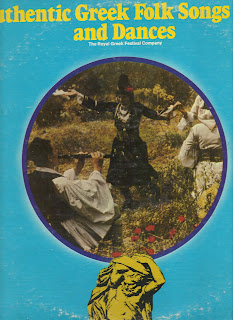 |
| Fiddlin Chubby Anthony with Big Timber Bluegrass "Love and Life", Old Homestead OHS-90121
Brighton, Michigan, 1979, photo by Jinx McCall
|
According to liner notes by Glen Olden on Love and Life Donald "Fiddlin' Chubby" Anthony was considered the finest fiddler in Bluegrass music and the hottest fiddle player on the Bluegrass Music Circuit. He was a friendly lad, and he combined dedication with talent and honesty to make him top musician three times in the State of Florida. Chubby Anthony passed away in 1980 from kidney failure and liver failure, he was only 44 years old.
There's not much local music of note to be found in the thrift stores of Southwestern Florida (there are no record stores) so it's nice to come across a record by a friendly fiddler from Central Florida. There's actually not much live music to be found in South West Florida either. Downtown Fort Myers has a free music night once a month but it's not too good (unless you're a fan of cover bands doing versions of The Eye of the Tiger, or The Final Countdown), and the sole concert hall in town could feature a jam with old members from Boston or The Three Dog Night for $25 or Dionne Warwick for 45. The best music in town comes out of a nearby park when a religious holiday prompts yet another Mexican celebration or groups of youths that gather to practice their hip-hop dance moves.
(My apologies go out to those who are involved with the music scene in Fort Myers for me making up those names, titles, and prices.)
The song below is the opener on Love and Life called Dear One. It was written by Donald Anthony and recorded in Auburndale, Florida in 1978.
(My apologies also to those who want to download some of these songs I post: I keep forgetting to use that option, but if you want something you see, or if you want more from a certain album, I will put it out there for you, just write me a note. In the meantime here's Dear One.
The song below is the opener on Love and Life called Dear One. It was written by Donald Anthony and recorded in Auburndale, Florida in 1978.
(My apologies also to those who want to download some of these songs I post: I keep forgetting to use that option, but if you want something you see, or if you want more from a certain album, I will put it out there for you, just write me a note. In the meantime here's Dear One.


